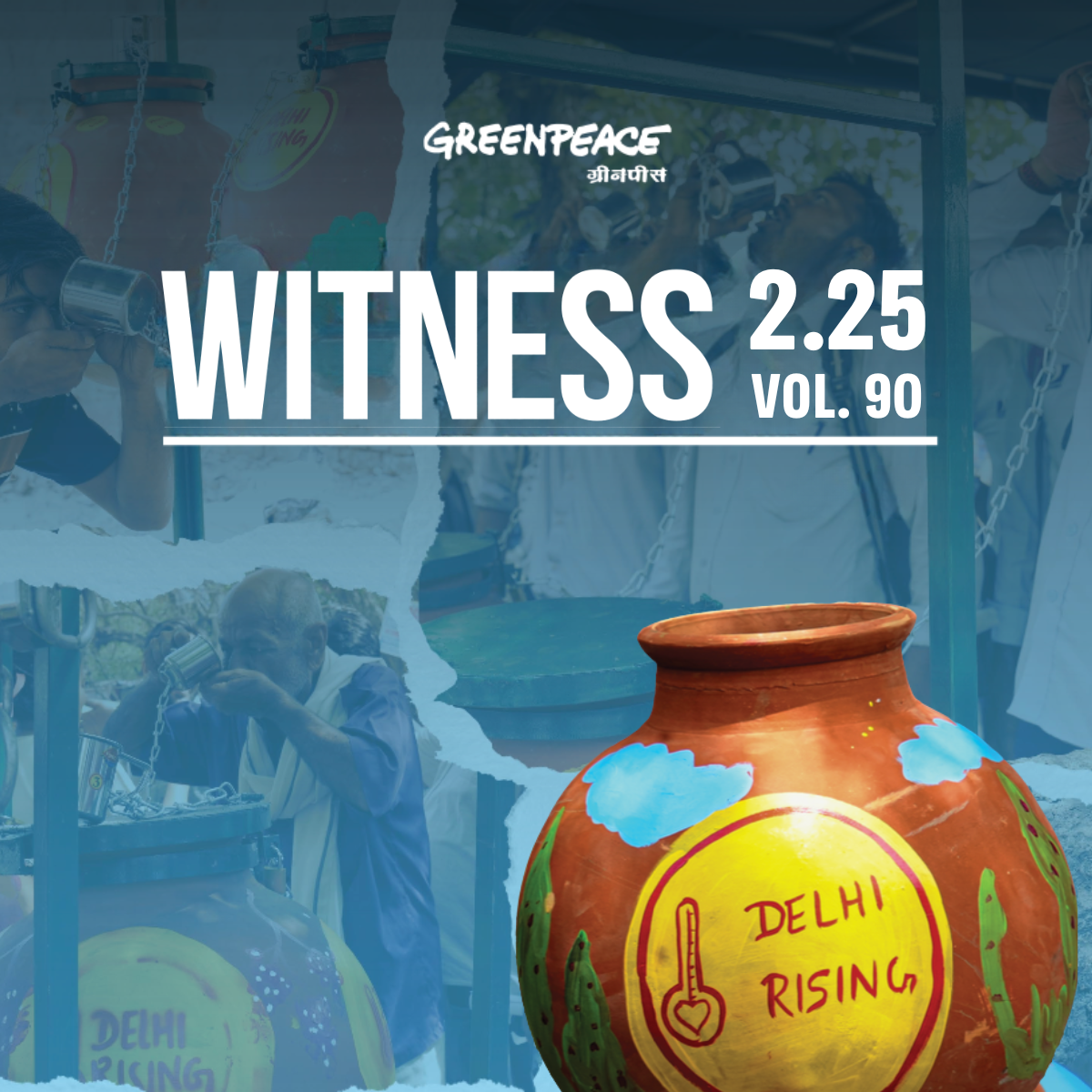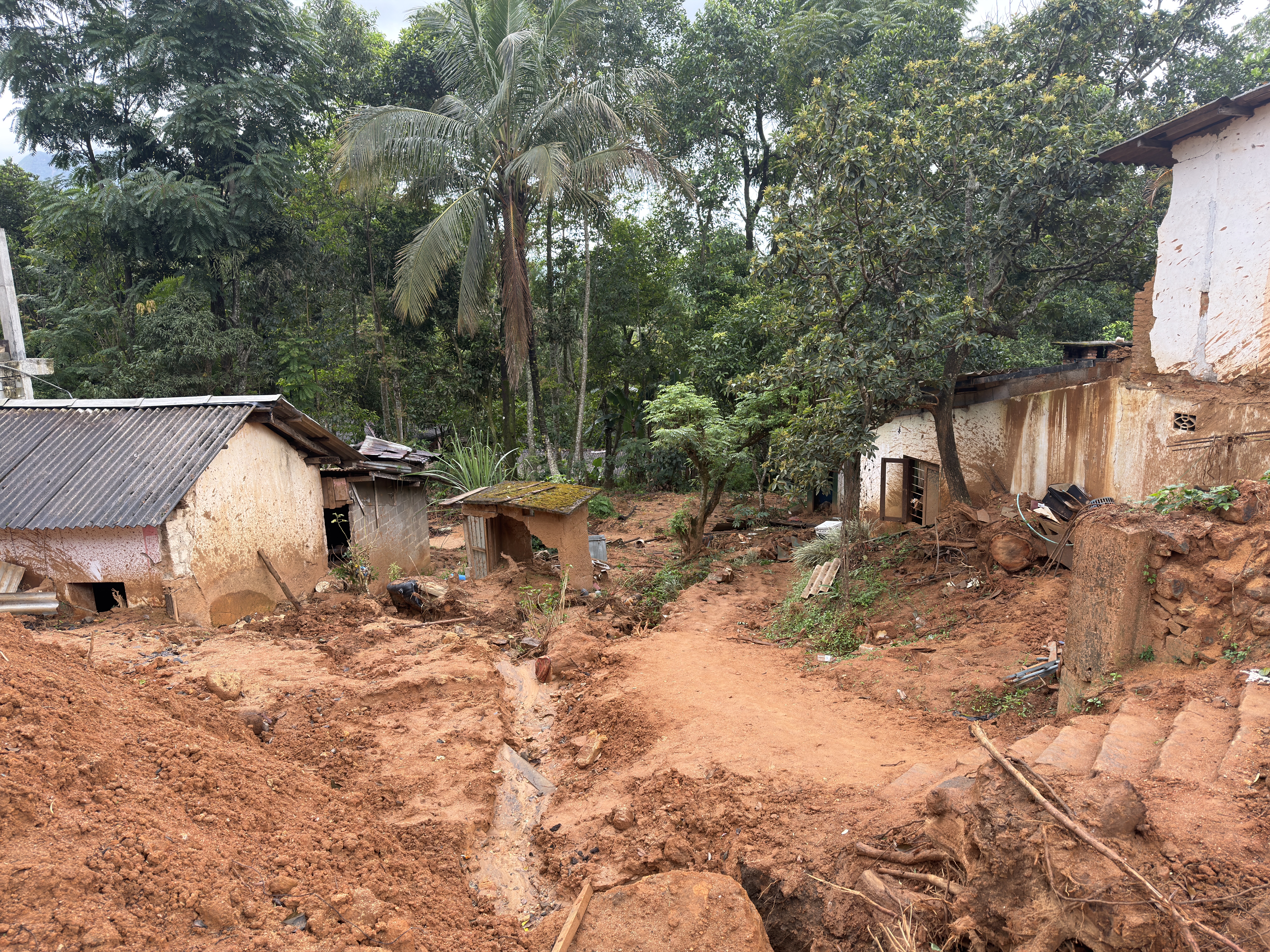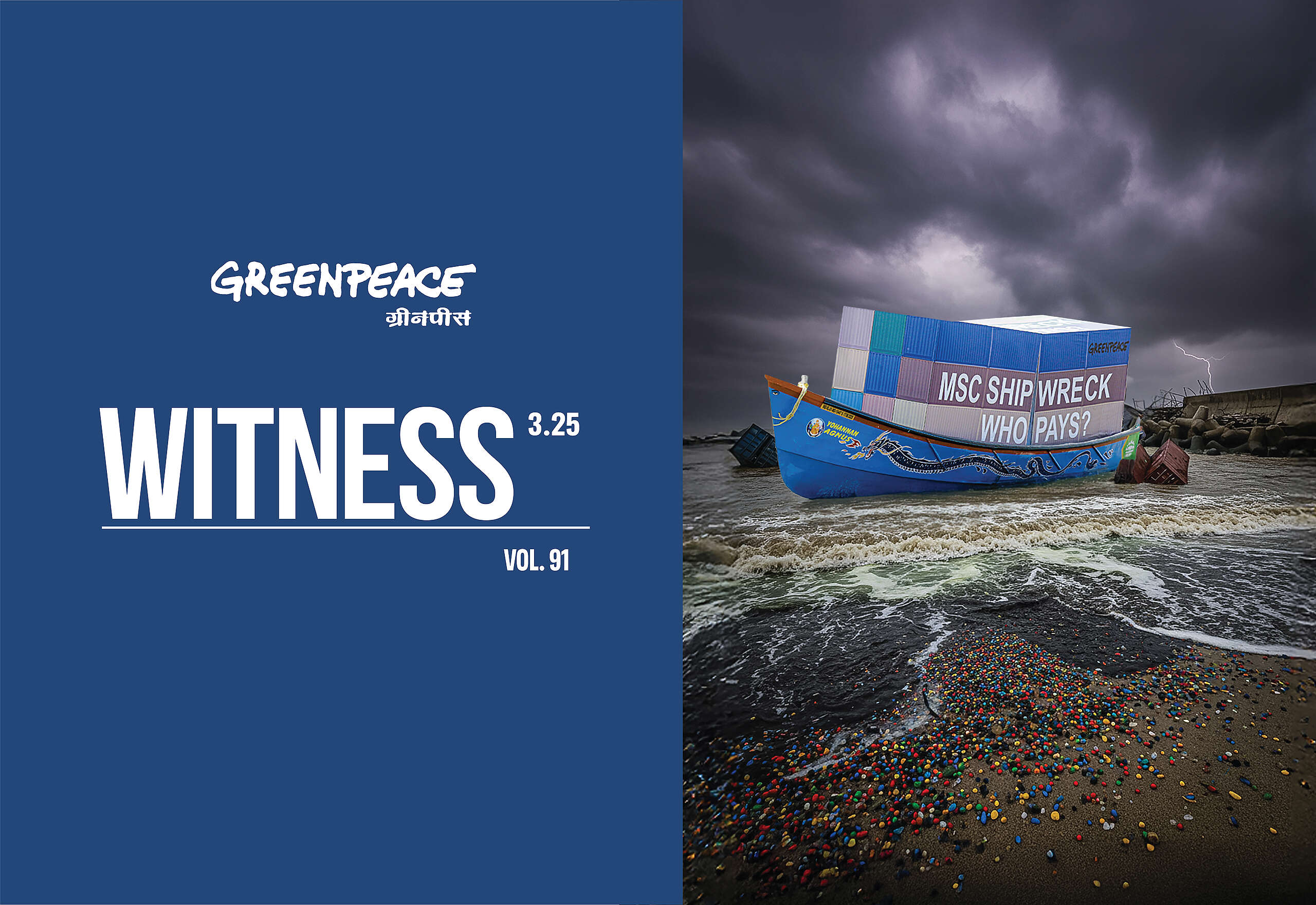Thiruvananthapuram, July 28th 2025: In a press conference held today in Thiruvananthapuram, Kerala, Greenpeace India along with environmental groups, legal experts, and fishworker unions released a comprehensive white paper outlining the potential ecological and socio-economic impacts of the MSC ELSA 3 shipwreck and called for urgent and enforceable action by the Mediterranean Shipping Company (MSC). The document details some of the far-reaching consequences of the shipwreck that occurred 14.6 nautical miles off the coast of Kochi on May 25, 2025, which has since spiraled into a multi-dimensional environmental and human crisis.
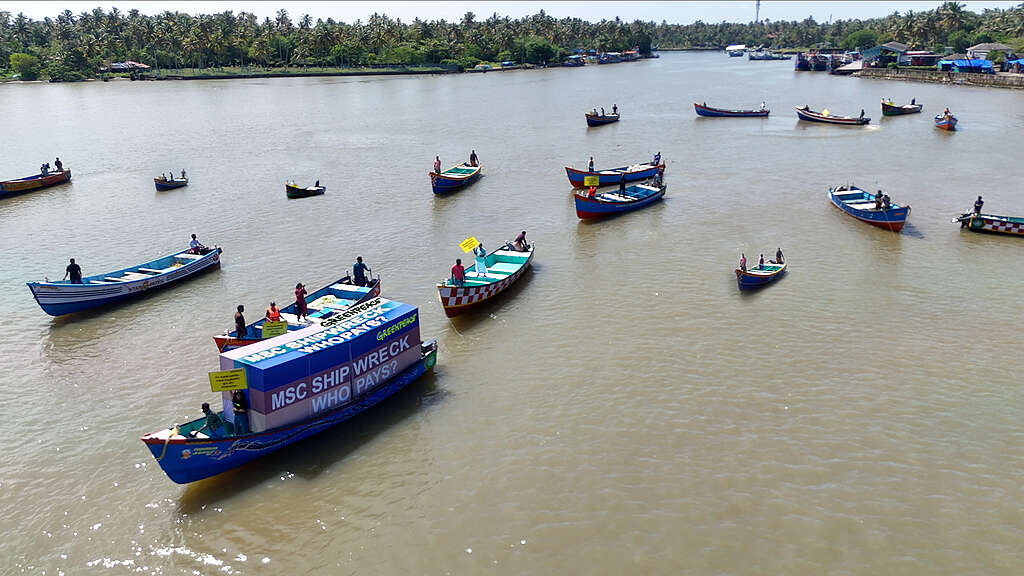
To amplify their call, On Sunday, July 27, over 80 people including members of the fishing community from Muthala Pozhi Perumathura, Coastal Students Cultural Forum (CSCF), came together with 20 boats for a powerful and symbolic visual protest. The action featured a floating banner with the message “MSC Shipwreck, “Who Pays?” spotlighting the pressing question of corporate accountability.
The white paper, covering the period 25th May – 25th June, details multiple dimensions of the damage including widespread nurdle contamination along the coast from Kerala, to Tamilnadu and Sri Lanka. The document also outlined the severe livelihood disruptions for fisherfolk, and growing concerns over marin biodiversity.
“This is not just an accident. This is corporate negligence,” the document states. It demands the company to support an independent environmental and social impact assessment and roll out a comprehensive compensation package that reflects the magnitude of the damage.
As the MSC company has denied its responsibility and refused to pay ₹9,531 Cr compensation demanded by Kerala Govt and also claimed that there is no significant ecological damage from the sunken vessel MSC Elsa-3, the White paper demands that the company be held fully accountable. It calls for immediate and full clean up funding to remove the billions of plastic nurdles spilled across the coastlines of Kerala, Tamilnadu and Sri Lanka, along with long term compensation for the lingering environmental and economic impacts of nurdle pollution and toxic chemical discharge.
The MSC ELSA 3 was carrying 643 containers, including hazardous chemicals such as calcium carbide and hydrazine, over 450 tonnes of diesel and furnace oil and more than 60 containers of plastic nurdles, tiny raw plastic pellets, whose content have washed up along the Kerala coast, reaching Tamil Nadu’s Dhanushkodi sanctuary and the UNESCO Biosphere Reserve of the Gulf of Mannar, which is considered one of the world’s richest regions from a marine biodiversity perspective, as well as most of Sri Lanka’s coastline from Jaffna in the North Province to Matara in the South.
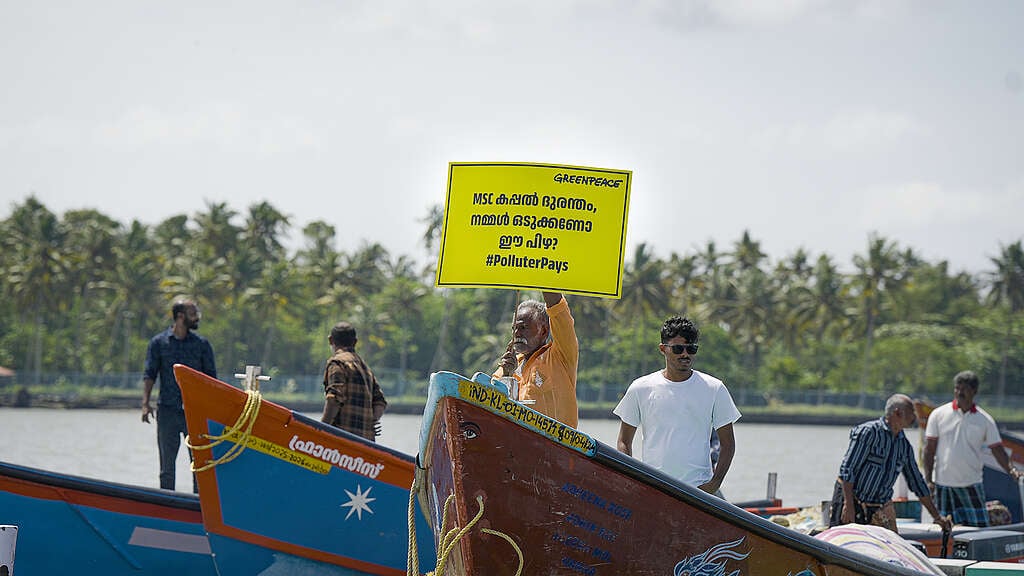
“The tiny plastic nurdles pose long-term threats to marine life, human health, and regional biodiversity. These nurdles are extremely difficult to remove from the environment, they absorb other pollutants, get eaten by fish, and break down into smaller microplastics that will cause lasting damage to sensitive ecosystems such as coral reefs, seagrass meadows, mangroves, and fish feeding grounds. MSC must not be allowed to walk away from this. They should pay for every bit of this damage—to the sea, and the communities that depend on both,” said Aakiz Farooq, campaigner at Greenpeace India.
This disaster has significantly affected over 10 lakh fisherfolk in Kerala, especially after early monsoon weather restrictions and the 20-nautical-mile fishing ban period following the accident, with serious consequences on daily income, food security, and occupational health.
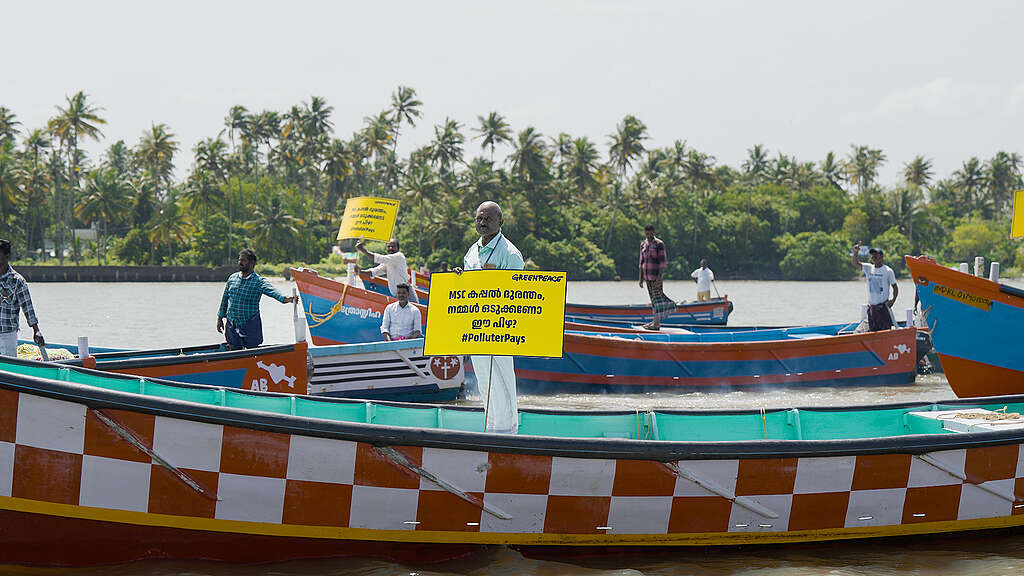
Jackson Pollayil, the State Secretary of Kerala Swathantra Matsya Thozhilali Federation (KSMTF) said, “Our fishers are staring at a bleak future. With the fishing ban, the seafood market collapsed due to contamination fears, and no substantial support has pushed our people into crisis. This disaster has hit our livelihood, food security, and dignity. MSC must be held accountable and the government should also increase the compensation and ensure corporate accountability.”
“The MSC ELSA 3 shipwreck is more than an accident – it marks an unfolding ecological crisis that demands urgent local action. The pollutants released into our seas threaten marine biodiversity and traditional livelihoods, with potentially irreversible consequences. This is a wake-up call for stronger local governance, transparent accountability from polluters, and active participation of coastal communities and citizens in safeguarding our ecosystems,” said Rethin Antony, ward member and president of Coastal Students Cultural Forum.
The civil society groups, fisher unions, and environmentalists are calling on the Government of India and the Kerala and Tamil Nadu state governments to keep pushing for corporate accountability, launch an independent environmental impact assessment, and facilitate swift and just recovery for all impacted people and marine ecosystems.
For further media queries:
Amruta S. Naik, Campaigner at Greenpeace India, [email protected]
Nibedita Saha, Media Officer, Greenpeace India, [email protected]

